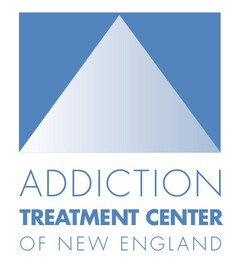Transformative Solutions: Choosing the Right Addiction Treatment Center
Transformative Solutions: Choosing the Right Addiction Treatment Center
Blog Article
Navigating the Journey of Detoxification in the Comprehensive Dependency Therapy Program
The process of detoxification holds a substantial function in damaging the physical reliance on substances and preparing the person for the subsequent phases of treatment. As people grapple with the difficulties of withdrawal signs and the uncertainties that exist in advance, having an organized plan and a durable assistance system in place comes to be critical.
Importance of Cleansing in Recovery

Detoxification sets the foundation for the remainder of the addiction therapy program by preparing the individual for additional treatment and therapy. By cleansing the body important that have been clouding judgment and influencing behavior, detox makes it possible for people to approach their recovery with a clearer mind and stronger focus.
Additionally, detoxing helps in handling the potentially serious withdrawal signs that might emerge when medicine or alcohol usage is quit. Doctor very closely check people throughout detoxification to guarantee their safety and security and provide essential support. Through this process, individuals can begin their trip towards soberness with a stabilized physical and psychological state, boosting the probability of a successful recovery.
Understanding the Detoxification Process
Cleansing, a fundamental part of addiction treatment programs, entails a structured procedure focused on safely getting rid of unsafe materials from the body to help with a successful healing journey. The detoxification process typically starts with an examination to evaluate the person's substance usage history, physical health, and psychological well-being. This analysis assists medical care experts determine one of the most suitable detoxification plan customized to the individual's requirements.
Throughout detoxification, the body undergoes withdrawal as it readjusts to the absence of the material. Withdrawal signs differ depending upon the kind of substance utilized, the duration of usage, and individual aspects. Medical guidance during detoxification is essential to take care of withdrawal signs and make certain the individual's safety and security and comfort.

Taking Care Of Withdrawal Signs And Symptoms

Drugs may be used to ease specific withdrawal signs and symptoms and decrease pain. As an example, medications like methadone or buprenorphine can help manage opioid withdrawal signs and symptoms, while benzodiazepines might be used for alcohol withdrawal. It is essential for medical care providers to thoroughly monitor the individual's feedback to these medications to ensure their safety and efficiency.
In addition to medicinal interventions, helpful therapies such as therapy, peer support system, and all natural practices like mindfulness meditation or yoga can help individuals cope with the emotional and psychological difficulties of withdrawal. By attending to check my source withdrawal signs thoroughly, medical care providers can improve the cleansing experience and support individuals on their journey to recovery.

Assistance Equipments Throughout Detoxification
Support systems play an important function in giving social and emotional support to individuals going through cleansing in dependency therapy programs. Throughout the detoxification procedure, people often experience a series of mental and physical withdrawal signs, making this stage tough - Addiction Treatment Center. Having a solid assistance system in area can dramatically impact the person's capacity to browse via detoxification efficiently
Household participants, close friends, assistance teams, and medical care specialists are vital components of the support group. Family buddies and members can offer encouragement, understanding, and a feeling of belonging throughout this tough time. Assistance groups offer a platform for individuals to get in touch with others Continue that are experiencing comparable experiences, providing a sense of area and shared understanding. Medical care experts, including physicians, counselors, and therapists, play an important role in monitoring the person's development, providing clinical support, and offering support throughout the detox procedure.
Looking Ahead: Life After Detoxification
Having actually effectively finished the detoxification phase, people in addiction treatment programs currently concentrate on preparing for the obstacles and possibilities that lie in advance in their journey towards healing. Life after detox notes a critical transition period where individuals should proceed to build on the development made during detox to preserve their sobriety. It is important for people to recognize that the journey in the direction of healing is continuous and requires commitment, dedication, and a determination to embrace adjustment.
One key aspect of life after detoxification is the growth of dealing mechanisms to manage triggers and desires that might emerge. This might include discovering new skills, such as mindfulness techniques, cognitive-behavioral strategies, and anxiety administration techniques, to navigate tough scenarios without turning to substance use. In addition, people are encouraged to proactively involve in continuous therapy, support system, and aftercare programs to strengthen their assistance network and get assistance as they browse the intricacies of life post-detox.
Conclusion
To conclude, detoxing is a vital element of the comprehensive dependency treatment program. Recognizing the detox process and handling withdrawal symptoms are essential actions towards recuperation. Support group play a significant function during this tough trip. Addiction Treatment Center. Looking ahead, life after detoxification holds promise for a much healthier, substance-free future. It is very important to identify the relevance of detox in the procedure of conquering addiction and relocating towards a life of soberness.
Clinical guidance during detox is critical to manage withdrawal signs and make certain the individual's security and convenience.
By recognizing the detox process and its value in damaging the cycle of dependency, individuals can embark on a path in the direction of lasting recuperation.
During the detox process, individuals commonly experience an array of physical and psychological withdrawal signs, making this stage tough. Healthcare professionals, including therapists, doctors, and counselors, play a crucial role in keeping an eye on the person's progression, giving medical support, and offering assistance throughout the detox process.
Life after detox marks an important shift period where This Site individuals need to continue to develop on the progress made during detox to maintain their sobriety.
Report this page